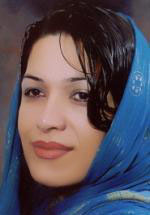Women’s Rights Activist in Prison Without Family Contact
 An informed source close to 38-year-old women’s rights activist Fereshteh Shirazi told the International Campaign for Human Rights in Iran that since her arrest on 3 September 2011 in the city of Amol, she has had very little contact with her family.
An informed source close to 38-year-old women’s rights activist Fereshteh Shirazi told the International Campaign for Human Rights in Iran that since her arrest on 3 September 2011 in the city of Amol, she has had very little contact with her family.
The source told the Campaign that Shirazi’s trial was held on 28 September, and despite promises made to her that she could see her son on 25 September, she was not allowed to do so and her visit was postponed.
Last week, security officials searached Shirazi’s home and seized some of her personal belongings. Since her arrest she has only been able to see her brother once and only for a very short period of time. She is prohibited from seeing other members of her family, including her son.
Shirazi is a management student and women’s rights activist who has been active in the Campaign for Change for Equality since March 2009. She was interrogated several times in the past year because of her civil society activities and what she has written in her blogs. Her arrest was probably connected to these activities. According to the source, since her arrest she has been forbidden from seeing or calling her family members.
In her blogs, Shirazi had written several personal notes about one of her brothers who was executed in 1983. According to the source, Shirazi’s family is worried about her detention in Amol Prison because she has very little contact with others outside of the prison and she is being held with other dangerous criminals. The conditions at Amol Prison are very poor due to the fact that it was originally a residential home, confiscated by the government, and is located in the middle of the city in a residential area. Prisoners in Amol Prison, unlike in Evin, are not allowed to cook food and they can only eat prison food that is of very low quality. Unlike Evin and Rajaee Shahr prisons, there is no exercise equipment or educational classes and there are no rehabilitation programs.
Amol Prison is estimated to be able to hold 250 prisoners, but currently houses over 700. According to the source, the prison holds about 60 female inmates, and the rest are men. According to former prisoners from Amol, due to the overcrowding of the facility prisoners frequently engage in infighting. The majority of those held in this prison are charged with drug-related crimes, and include both native and non-native prisoners.
